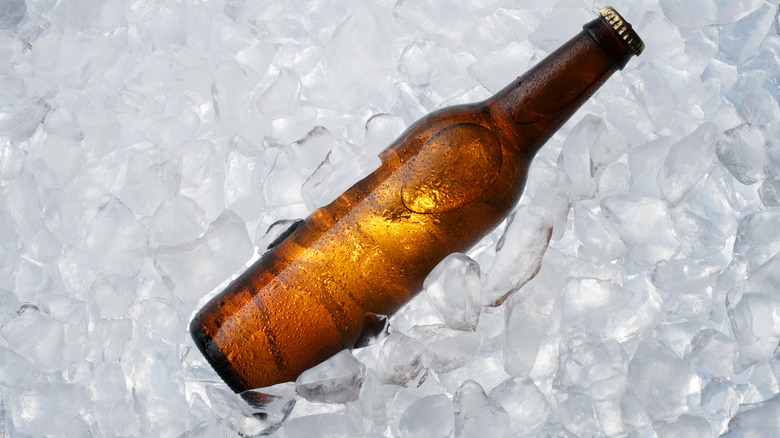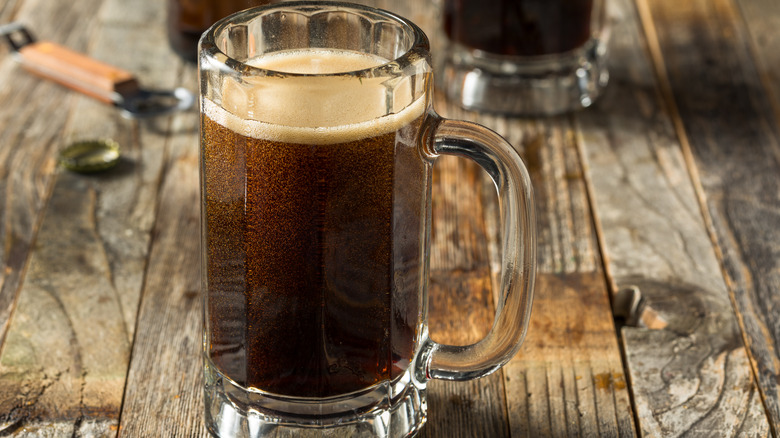Why You Should Think Twice About Using Tap Water In Homemade Root Beer
Where would we be without the wide, wonderful world of refreshing soft drinks? In those times when plain water just doesn't cut it, we love to indulge in a crisp, cold cola, ginger ale, or — one of our very favorites — root beer. Whether drinking it on the rocks, in an ice cream-topped float, or using it as a flavoring in pulled pork, we love this soda that was traditionally made with actual roots such as sarsaparilla and licorice (via Nourished Kitchen).
As it turns out, root beer isn't that complicated to make at home. While some online recipes get fancy, calling for dry ice in order to produce all those lovely carbonation bubbles (via Steve Spangler Science), true root beer is actually a fermented product — hence the name "beer" — and will ferment on its own inside capped bottles (via Nourished Kitchen). Whether you want to go mad scientist or prairie mother when making root beer, you'll want to make sure you're not using tap water when brewing the soda.
Tap water can bring off flavors to the party
If you choose to make root beer at home, you can go the more modern route by purchasing a bottle of root beer extract, adding a few drops to a bowl of sugar water, and then chucking dry ice into the water, which cools and carbonates the liquid at the same time (via Steve Spangler Science). Or if you want to go the old-fashioned route, which produces a funkier root beer, you'll need to purchase specialty roots and barks, including sarsaparilla, licorice, and birch. The latter drink uses a mother culture similar to the SCOBY used to brew kombucha and carbonates naturally inside sealed bottles (via Nourished Kitchen).
Yet, whichever way you choose to make your soda, you'll want to make sure to utilize distilled — not tap — water. As explained by Steve Spangler Science, plain ol' tap water contains an array of minerals, chemicals, and other dissolved materials that can add unwanted flavors. For this reason, it's recommended to use distilled water, which does not contain those additives and results in a pure-tasting water that provides a blank slate for your root beer.
Luckily, distilled water is cheap and widely available, found at drug stores and grocery stores for about a dollar a gallon (via Steve Spangler Science). So when it's time to tackle homemade root beer, reach for the distilled stuff instead of the tap.

